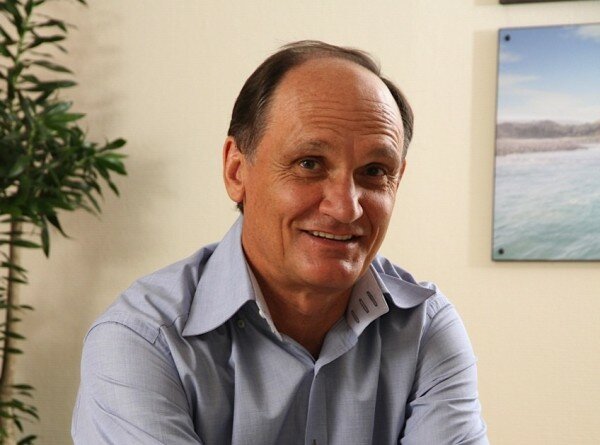
Alan Knott-Craig Sr, executive board member and former CEO of Cell C.
This week the Independent Communications Authority of South Africa (ICASA) is in court facing legal claims by leading operators MTN and Vodacom, challenging the new mobile termination rates (MTRs) which will provide asymmetry with negative repercussions for larger operators. In this guest post, Alan Knott-Craig Sr, chief executive officer (CEO) of Cell C, which supports the new rates, discusses the case and says this week is a landmark one for South African telecommunications.
It is no exaggeration to claim that the coming week will be make or break for affordable mobile communications in South Africa – quite possibly for the next twenty years.
On 1 April 1994, Vodacom and MTN launched a service in South Africa, a launch brought forward to support the Independent Electoral Commission in managing the first democratic elections in the history of our country. Twenty years later, Vodacom and MTN are the dominant telecommunications operators in the country, having eclipsed Telkom with the massive assistance of a R1.00 asymmetry with Telkom for the first 15 years of their operations. On 1 April 2014, a new, bold Regulation will constrain the ability of Vodacom and MTN to continue to charge high retail rates. It will do this directly by reducing their termination rates (a de-facto floor below which retail tariffs cannot fall) and also indirectly by providing a significant pro-competitive support (“asymmetry”) for the smaller operators. This asymmetry, although less than a third of the asymmetry granted to Vodacom and MTN to enable their businesses to compete, is still sufficient to provide a fighting chance that will see a long term and sustainable shift in the established duopoly of the past 10 years. Such a shift would mean a profound change in retail prices and could deliver enormous benefit to all customers (not just Cell C’s), the South African economy as a whole and, yes, Cell C.
The legal points will be heard this week and Cell C believes that it is in the interest of the public to be clear about what this fight is about. The bottom line is that even Vodacom and MTN acknowledge privately that reductions in termination rates are fair, reasonable and inevitable. They also acknowledge that their “costs” are far lower than the current termination rate of 40 cents. In fact, based on Vodacom’s assertions about their retail tariffs it is clear that their true costs are substantially below the 20 cents that ICASA has prescribed from 1 April 2014. If a change is inevitable, the only option left to Vodacom and MTN is to delay – and that is exactly what this fight is about.
I am proud that our Regulator had come up with something that would give consumers and the SA economy a bit of hope for affordable mobile communications in the future.
As the founding CEO of Vodacom, I know that I had a hand in creating the environment we find ourselves in now. I accept that I helped build an industry dominated by a duopoly. At the time, and during the first ten years of the industry, it was the right thing and the industry was about building high quality networks. But it should never have lasted this long – the second ten years of the industry appears to have been more about reaping extraordinary profit than about telecommunications.
Having said that, I have also made the commitment to fix things as they stand now. When I joined Cell C, the first thing I did was reduce prepaid call rates to bring them in line with contract tariffs, which have traditionally been much lower than prepaid tariffs (and which continues to be the case for the dominant operators).
Cell C introduced a simple concept. Flat rates – one rate that applies to all calls, to any network, at any time; thus taking out the dizzying complexity of the traditional mobile space. And Cell C continues to do that even though we don’t have the scale and financial muscle that our competitors have.
I have not stopped believing in what I started when I joined Cell C, even while I have been recovering from the stroke I suffered late last year. I am in the final stages of my recovery and should be back in the saddle soon.
It is my fervent hope that I return to an industry that looks very different from what it has for the last 20 years. I want to come back to an industry that reflects our 20 years of democracy. I want to come back to a competitive industry, an industry ready to provide services to everyone, at a good rate. I would like the next ten years of the industry to be about honest, good value service, delivered in a way that consumers understand – a fair price for a good service.
I believe that 1 April 2014 could prove to be almost as significant as 1 April 1994 – both pivotal moments in the history of our industry and our country.

















